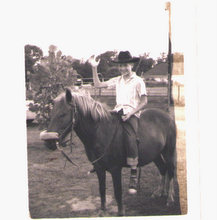
Leaving elementary school in June and going to the Junior High School in September is one of the most abrupt transitions I can remember from my childhood. From the same group of women teachers in a comfortable school near my house, I was sheltered for seven years at Fanny Hillers School. Then one September I was abruptly moved to the topsy turvey world of Junior High School.
On the first day of school I had to wear a tie. The other kids said that if you didn't come to school you would emerge with a black eye and a bloody nose. While not strictly true, one always felt better being on the safe side in these matters.
Then there was the bus ride to school. I could walk before. Now school was too far. We weren't even allowed on a school bus but had to ride on a public bus. My bus stop was the home of most of the juvenile delinquents of the school. The boys would smoke and curse and the girls would snap their gum loudly.
The school itself was the ugliest and oldest school I ever attended. (No I didn't attend Columbia University). I had to learn about boys and girls entrances. I had to change classes too. And there were male teachers. Boys were addressed by last names now. The children in my classes misbehaved badly and the teacher's seemed unable to discipline them. One look from Miss Watson and the kids would quiet down. Now the teachers seemed incapable of bringing order to the classes.
Living close to school I had gone home for lunch. Now I had to eat in the cafeteria. The old school was entirely Caucasian. Now there were Negroes and children who spoke Spanish that they didn't learn in school.
I had to take algebra from a stern man with a beard. There was nothing like that in dear old Fanny Hillers. Then there was band. Band was a huge group of students in a stuffy old room. We had to take auditions to see where we would sit. Oh where was dear Mr. Santarama now. Even the sweat coalescing near his armpits was comforting.
editor's note: we will deal with gym class in a future lecture.



